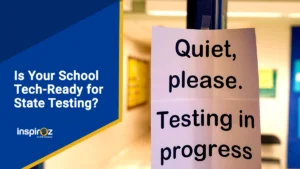Charter schools have distinguished themselves as an appealing alternative to traditional public educational institutions in the rapidly changing field of education.
These establishments offer distinctive avenues for personalized learning experiences and educational innovation.
However, such innovation inherently necessitates a robust technological framework, therein lies the significance of Managed IT Services, rendering them the ideal allies of charter schools.
In this discourse, we shall embark on a journey exploring the rationale behind the collaborative relationship between Charter Schools and Managed IT Services, supported by observational data and scholarly investigations.
Economical Wisdom and Resource Optimization
A foremost reason underpinning the synergy between charter schools and Managed IT Services is the compelling allure of economic wisdom.
Charter schools often struggle with constraints of fiscal resources, thereby causing formidable obstacles in the allocation of funds for in-house IT departments.
Managed IT Services providers furnish a fiscally intelligent alternative, delivering superlative IT support devoid of the overhead expenditures synonymous with the employment and maintenance of an internal IT workforce.
“According to a comprehensive study commissioned by the National Alliance for Public Charter Schools, charter schools availing the services of Managed IT Providers accrue annual cost savings averaging between 20% to 30% in the domain of IT-related expenditures.”
These fiscal windfalls can be judiciously channeled into the augmentation of educational programs, the recruitment of additional educators, or the fortification of technological resources for the student populace.
Exemplary Proficiency and Niche Expertise
The providers of managed IT services are recognized as the pinnacles of knowledge in their industry because of their expertise in offering comprehensive IT solutions.
They bring with them a vast store of knowledge and a wealth of practical wisdom that charter schools can tap into to improve their technological infrastructure.
With this elevated level of knowledge, charter schools are assured of having access to the cutting edge of technology developments and the pinnacle of best practices in IT management.
“Studies that were carried out under the guidance of the Charter School Growth Fund have revealed that charter schools that partner with Managed IT Services providers boast higher levels of technological integration, strengthened network security, and increased effectiveness in the governance of their IT frameworks.”
These effects immediately contribute to a learning environment that is beneficial for teachers and students alike.
Scalability and Versatility
Charter schools frequently navigate the terrain of shifting technical requirements and variable enrollments.
Managed IT Services companies act as forerunners of adaptability and scalability in this erratic environment, able to adjust their offerings in line with the institution’s shifting needs.
According to the changing needs of the school, they can quickly modify their services, increase or decrease their resource allocations, and implement the incorporation of cutting-edge technologies.
“In accordance with a comprehensive survey by the Center for Reinventing Public Education, 87% of charter school administrators acknowledge that Managed IT Services have significantly improved their institution’s ability to adapt to the changing needs of technology.”
This fluidity in adaptation affords charter schools the liberty to concentrate on the core mission of delivering quality education, secure in the knowledge that their IT exigencies are vigilantly attended to.
Augmented Safeguarding and Data Custodianship
Data custodianship is a top concern for educational institutions, especially at a time when cyber dangers are becoming more and more prevalent.
Managed IT Services providers manifest a distinct prowess in upholding secure cybersecurity protocols and embedding the sanctity of data.
They instate cutting-edge security models, conduct routine evaluations of potential threats, and suggest comprehensive disaster recovery mechanisms to safeguard the invaluable repository of pivotal school data.
“A comprehensive report circulated by the Data Quality Campaign has divulged that charter schools entering into partnerships with Managed IT Services providers experience diminished instances of data breaches and cyber assaults.”
This not only serves to insulate sensitive information pertaining to both students and faculty but also supports the trust reposed by parents and guardians in the school’s unwavering commitment to the preservation of data security.
Conclusion
The partnership of charter schools with Managed IT Services assumes the role of an ideal partnership in the complex educational scene.
As charter schools continue to shape the direction of the educational future, their seamless fusion with Managed IT Services speaks to the vital technology framework needed for advancement and innovation.
By trusting their IT needs to the focused care of Managed IT Services providers, charter schools are prepared to thrive both academically and administratively, writing a narrative of uncontested success in the history of modern education.







